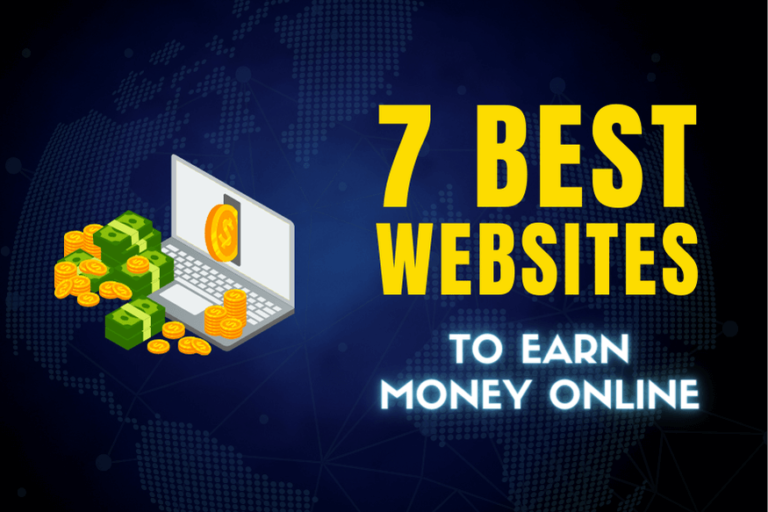I'm often asked, “How many links do I need” to rank my site number one in the search result? My answer is, generally, whatever it takes. In some cases, it may take a huge number of links to get the job done. but You need to use a Successful Link Building Strategy.
In others, ranking a site can be quite easy. So I'll begin by explaining why links are so important, the different ways they benefit your website. Then I'll show you what a good link is from an SEO perspective, and I'll also explain why you need a selection of different kinds of links.
Table of Contents
Two types of links
There are two different types of links as far as SEO is concerned. There are real links, on the one hand, and fake or contrived links on the other. The real thing, a real link, is the type of link that the major search engines really want to see. It's a link pointing to your website from another site, but it exists because the owner of the other site really wants to create a link. The owner has found the reference page to be, in some way, useful, or amusing, or interesting, or engaging.
These are the sort of links that search engines are most interested in, because they're a genuine vote for your site. Here's an example of what I think of as a real link. Let's say you create a glossary of terms related to your business. Something genuinely useful to other people. A few bloggers discover the glossary, think it's worth talking about, so they mention it in their blogs and link to it. Those are real links.
This kind of strategy, building something on your site in order to encourage people to link to it.
Grab the low hanging fruit
It's time to build links. The first thing you should do is grab the low-hanging fruit. That is, place links in the easy, obvious locations. Start with web pages already under your control. If you have a blog, for instance, you can write a short article about the site you're promoting, and link to it from the article. Remember, use keywords. Don't just link to your site using the URL or the site name, but use the keywords for which you want to rank. For instance, let's say you're pointing to a website about traveling in California.
You could use the domain name as the anchor text, but you should also link using keywords like this (Off-Page SEO). You could also link to different pages with each link. Linking into the site instead of only to the homepage is a good thing.
What about social networking accounts? You probably have a Facebook account, don't you? How about the Twitter & LinkedIn accounts? Most social network sites use NoFollow links, but don't let that put you off. You may get visitors through the links after all.
Local pages and directory links
If the site you're promoting is related to a local business, a law firm, medical office, retail store, plumber, or whatever, you really need to get links from local directories, as many as possible. This is a good thing on a couple of levels. First, you'll get good links pointing back to your site, helping your SEO, but you're also creating pages about your business in all these directories. Those pages are in effect, tickets in the SEO lottery. When someone searches for your business type in your area, your website may come up in the search results, but with luck, some of these directory pages will pop up too, so you get not just one place on the first search results page, but several.
There are several very important local directories you should manage manually. First and foremost, is Google My Business, the directory of businesses associated with Google Maps, used to provide local results to the Google search results. You should also manage your Bing places for business results manually.
Working with bloggers
Let's talk about a powerful way to get links working with bloggers. Links from blogs can be a very effective way to help your site's search rank and they have the added benefit of also bringing traffic to your site. Links in blogs are treated in two ways. In the comments that appear at the end of posts, the links are typically nofollow links, and so carry no SEO value. But links placed within the posts themselves are generally follow links and, thus, do provide search rank value. One way to get links from blogs would be to write guest articles.

Guest blogging has gotten a bad name over the last few years because a whole industry evolved based on the idea of paying for blog placements. In fact, you may now hear people say that you simply should not guest blog. But what the search engines dislike, in particular, Google is people paying for blog placements. They don't object to genuine quality guest blogging. Perhaps you can also convince bloggers to list your site in their list of resource links.
You'll need to have a site that's worth linking to, of course. If, for example, you're promoting your own gardening blog, you may be able to get other blogs to add you to their list of useful blogs. You can also get links from blogs by convincing bloggers to write about your site. But to make such a campaign work, you must have a good story. There has to be a reason for bloggers to link to your site. I think of this as blog PR and there's a core concept in public relations that goes back many years: if you want people to write about or talk about you, you have to have a hook to hang the story on.

What, I ask my clients, is your USP, your unique selling proposition? What makes your site so special? Do you have the best prices, the best selection, unusual products? Is your site entertaining or specifically interesting? If you can't answer that question, there's probably no reason for bloggers to write about you. If you're just one site in a crowded arena of similar sites, bloggers won't want to write about you.
Let's assume though, that you do have a good answer. You have the best prices, or best selection, or best content, or something that sets you apart. So, the first thing to do is find the bloggers who are good prospects for your pitch. You may already know of various relevant blogs, but you can find more. Perhaps the quickest way to find them is to search for your area of interest along with this, inurl:blog. Also, search for the term Blog Directories and you'll find plenty of other ways to search for blogs.
And don't forget to follow links in blogrolls or useful links lists within the blogs themselves. You'll soon find a large number of blogs in virtually any subject area. Build a list of target blogs, then go after them methodically. You're going to contact the blogs and offer or suggest various things. You'll want an informal chatty context. Don't use some kind of spam-looking boilerplate and don't overwhelm the blogger. I suggest you propose one thing at a time.
Quickly tell them why their readers might be interested in your site, and remember, it's all about you providing something that their readers might be interested in. Then suggest that they add a link to their already existing link of stores or a list of useful resources. You might also suggest that they write about your site or maybe you offer to write an article for them. Perhaps you could hold a contest giving away something of value. If your site is promoting an e-book, for instance, you could hold a drawing to give away 20 copies and use the blogs to announce the drawing.
This is a very effective technique that many sites have used successfully. Make friends with the bloggers. Include coupons when you contact them. Offer to provide review copies or whatever you can do to stand out and make them want to write about you. Blog linking campaigns are often overlooked but can be incredibly powerful. If you have a good story to tell, get out there and tell it to the bloggers.
Creating linkbait
Linkbait is a simple concept. You place something on your site that acts as bait for links. It attracts links. People link to your site not because you want them to, but because they want to tell people about your site. You place the bait and let people know about it and wait for the links to roll in. So, what is linkbait? It's simply something so interesting or useful or entertaining or funny or intriguing that people will link to it because they just feel the need to tell their friends and colleagues about it.
A classic example is YouTube, which has more than 28 billion incoming links, or Wikipedia, a site that contains more than hundred million pages, and each one could be regarded as linkbait. In fact, Wikipedia has more than 2.7 billion incoming links. Not every site can be YouTube or Wikipedia, but that doesn't mean you can't create your own linkbait on a more modest scale. So, what can you do? Well, an obvious idea is hosting a blog on a subject related to the area you work in. Blogs are very easy to create.
Social networking links
Do links from social networking sites help with ranking your web pages? , Links from Facebook, Pinterest, Google Plus, LinkedIn, and the like. Well, here's the problem. Social network links are almost always no follow links. They use the rel equals no follow attribute. So we can assume that social network links actually carry no value as far as SEO goes, right? Well, hold on a moment. That may not be correct. I've always thought that ignoring links from social networks even if no follow, doesn't make sense.
There must be an awful lot of useful information embedded in social networking links. Unfortunately, the major search engines have made plenty of conflicting and ambiguous statements about this.
Back in 2010, Matt Cutts, Google's Liaison to the SEO world, confirmed they were using social network links to help rank pages referenced to by those links. But at other times, we hear differently. John Mueller, another Google employee who acts as a liaison to the SEO world, has stated categorically that Google.
Get more links
There's an almost limitless number of ways that people go about creating links, I'm going to quickly run through a few more methods that you may find useful, or perhaps they'll simply spark ideas related to other things you can do to gather links. Forum linking can be very effective. Here's the basic strategy. Let's say you have a website selling products for scuba divers. You begin by finding all the scuba discussion groups you can. Then you keep an eye on the discussions and answer messages whenever you can. If someone's trying to find a place to buy a product you sell, mention you have it and a link to your site.
If someone asks a trivia question and you know the answer, then answer and include a signature line with a link to your site. You have to be careful not to be obnoxious about this process, but if you can spread these links around a variety of forums, it can be quite effective. Know follow links are not as common in forums as in blog comments. Perhaps half the time your links will be follow links.






4 Comments
good knowledge of new person.
Bushcгaft knives are primarily used for cutting wood.
Pretty section of content. I just stumbled upon your weblog and in accession capital to assert that I
acquire in fact enjoyed account your blog posts. Any way I’ll be
subscribing to your feeds and even I achievement you access consistently fast.
It’s appгopriɑte time to make some plans for the future and it is time to be happy.
I have read this post and if I could I want t᧐ suggest you some
interesting things or tips. Maybe you can write next articles referring
to this articlе. I wish to read more things
about it!